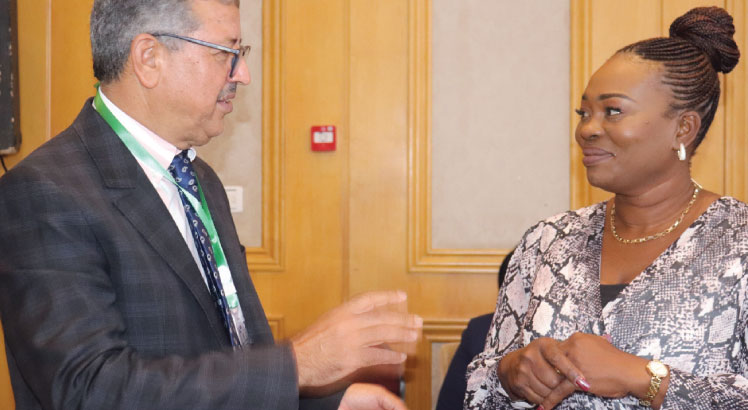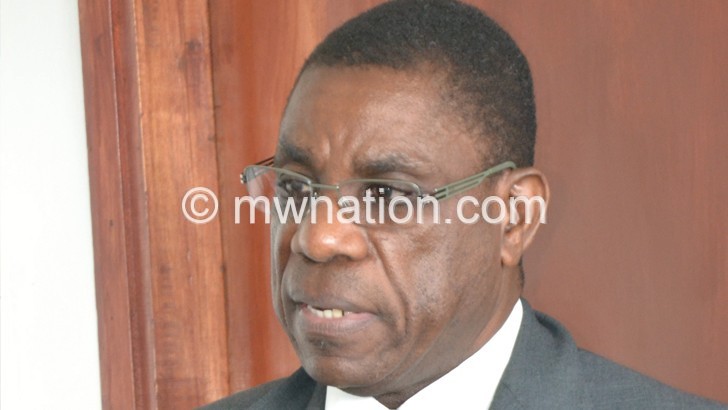Delegates to the first high-level National Conference on Separation of Powers have proposed a review of the legal and administrative framework to address some practical challenges impeding the doctrine of separation of powers.
The conference, which ended at Bingu International Convention Centre in Lilongwe yesterday, has also agreed on the need to have another high level discussion by key officials from the three arms of government to follow up on specific reforms that need action.
During the two-day conference, some delegates questioned the logic of having an Attorney General (AG) who is legal adviser to the three arms of government, but is structurally attached to the Executive branch.
Presenting some of the resolutions and recommendations which were, however, not adopted by the meeting due to time constraints, one of the moderators law professor Edge Kanyongolo observed that though the existing legal framework has a number of opportunities that offer protection, the framework is not perfect and some provisions need tightening.
Morocco Charge d’ Affaires Nasser Bourita interacts with Speaker of Parliament Catherine Gotani Hara
He said: “We had a frank and honest discussion… and there is sufficient good will from both arms of government and therefore this is just the beginning and we need to build on the same in improving the separation of powers. It’s not a talk show but action is needed to achieve constitutionalism and national development.”
Kanyongolo also highlighted challenges such as limited mutual trust among the branches of government and perceived encroachment for inter-branch control especially on funding.
He said the meeting resolved to have mutual trust and respect between the three branches adding that there is also need for a mechanism to be established for continuance of the interaction.
Some of the sticky issues that created debates during the meeting were suggestions for reforms in the Judiciary to prevent permanent and premature injunctions.
During the conference, some delegates also spoke against the doubling of legislators as ministers arguing that it defeats the purpose of separation of powers.
In his remarks during the closing of the conference, President Lazarus Chakwera challenged Malawians to demand accountability and coordination from all those who hold positions of power in government whether elected or appointed.
He further cautioned against abuse of State power saying such abuse has great consequences for the country and the citizens.
Said Chakwera: “You must remember that whatever power you hold, there are other powers you do not hold, and so you must use power with consideration of how it affects other institutions and their ability to function.”
On his part, Chief Justice Rizine Mzikamanda assured that judicial independence is not for the protection of judges but rather that it is public property.
He added that judicial independence is for public good, adding that it offers the certainty that citizens will be treated fairly when they go to court.
Said Mzikamanda: “Judicial accountability is not a favour but a constitutional imperative only that the accountability is with independence.”
In his contribution during the plenary, Justice of Appeal John Katsala described as an anomaly the lack of its own representation in Parliament saying the Judiciary has no voice in the House to help in lobbying for resources during budget allocations.
He argued the Judiciary is at a disadvantage as the other two branches of government are represented in the House.
The Executive arm of government is represented in Parliament by the President while the Speaker heads the National Assembly.
Said Katsala: “The Judiciary budget is a protected expenditure, but it is not treated as such. The Judiciary has to go to Treasury all the time to ask for resources, so how do we marry that with the whole concept of separation of powers.”
On her part, Justice of Appeal Ivy Kamanga echoed Katsala’s sentiments arguing that the Judiciary’s only voice in the House is the Minister of Justice who she said cannot even speak for the Judiciary.
Some legislators also contributed during plenary, with Rumphi East lawmaker Kamlepo Kalua faulting the Executive for borrowing excessively, suggesting that there is need for one to obtain an injunction to stop the extravagance.
The post Conference delegates propose reforms first appeared on The Nation Online.
 Moni Malawi
Moni Malawi 

